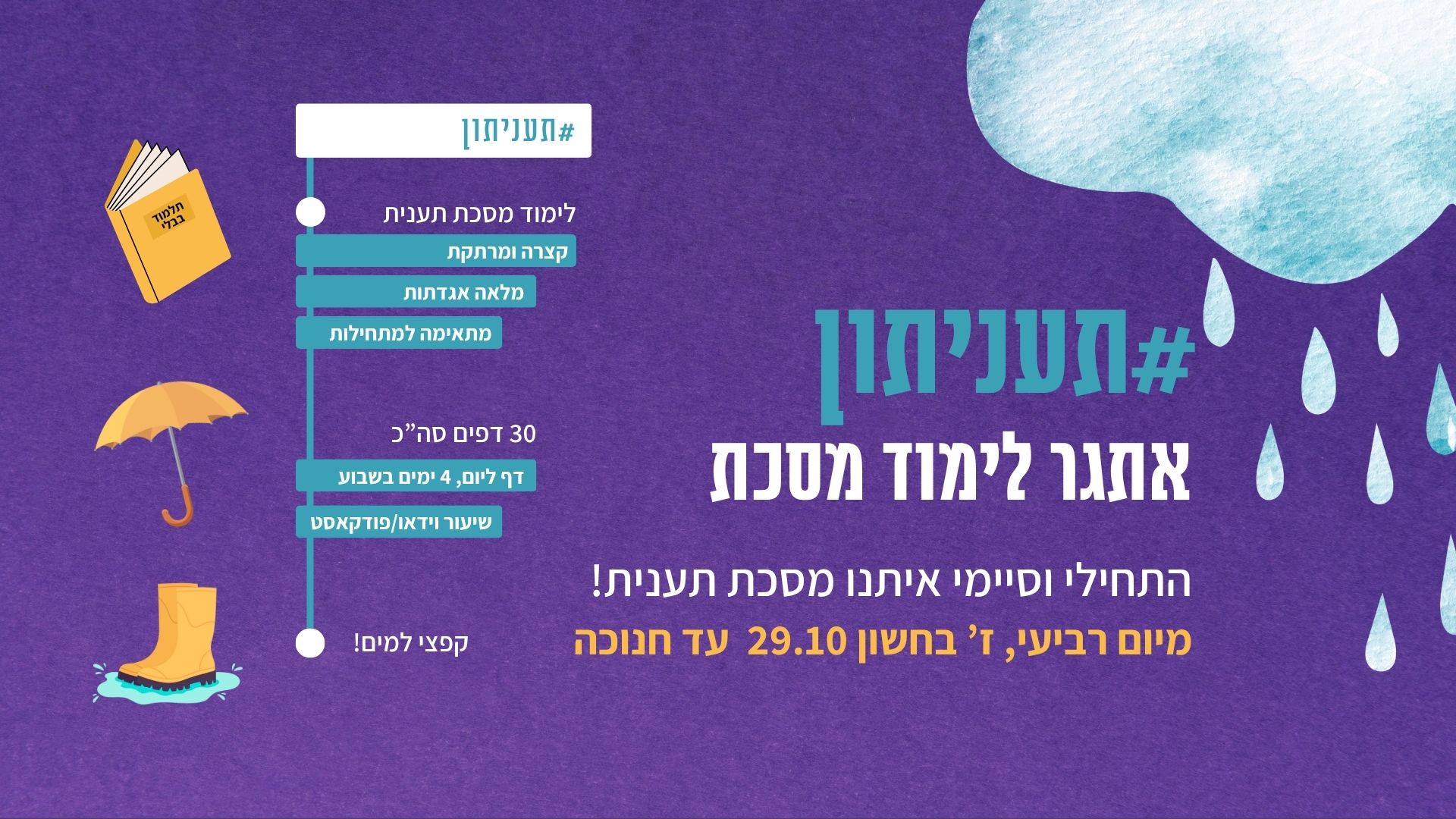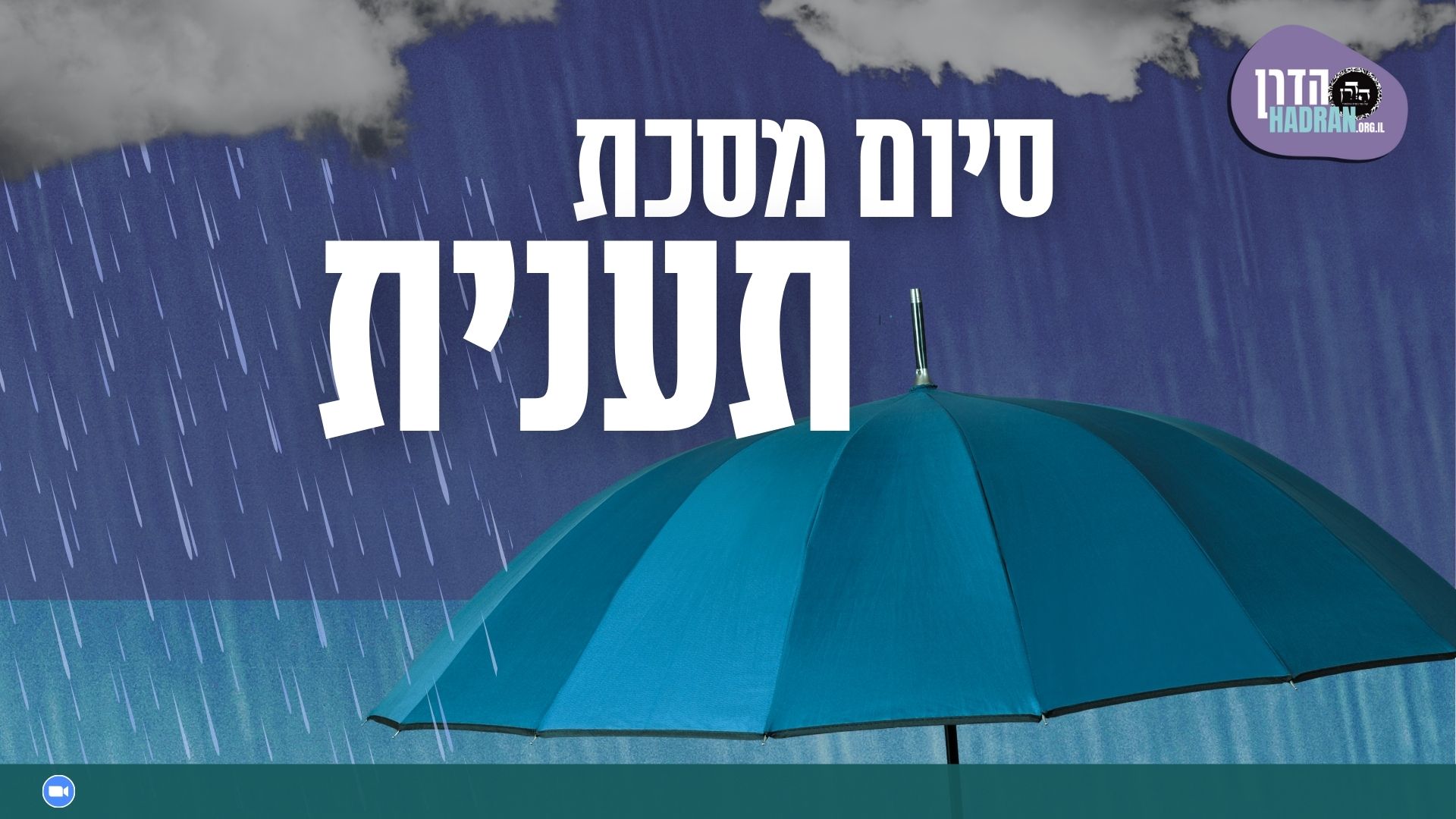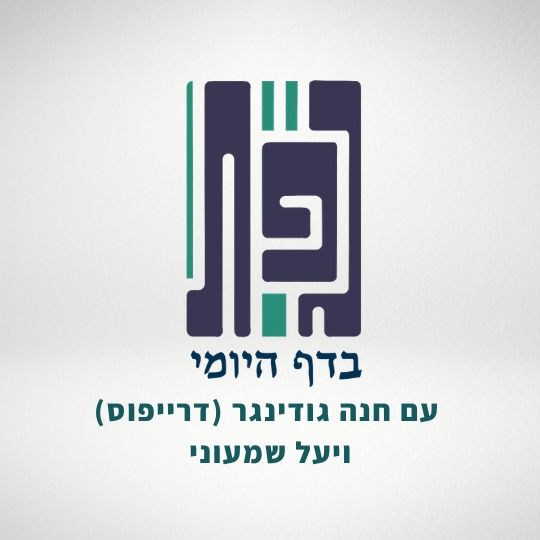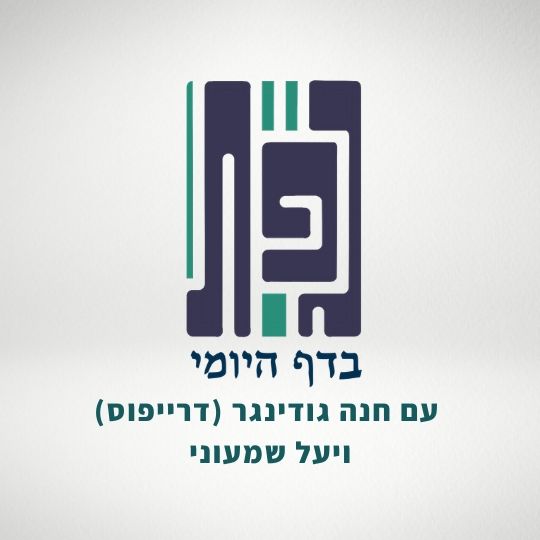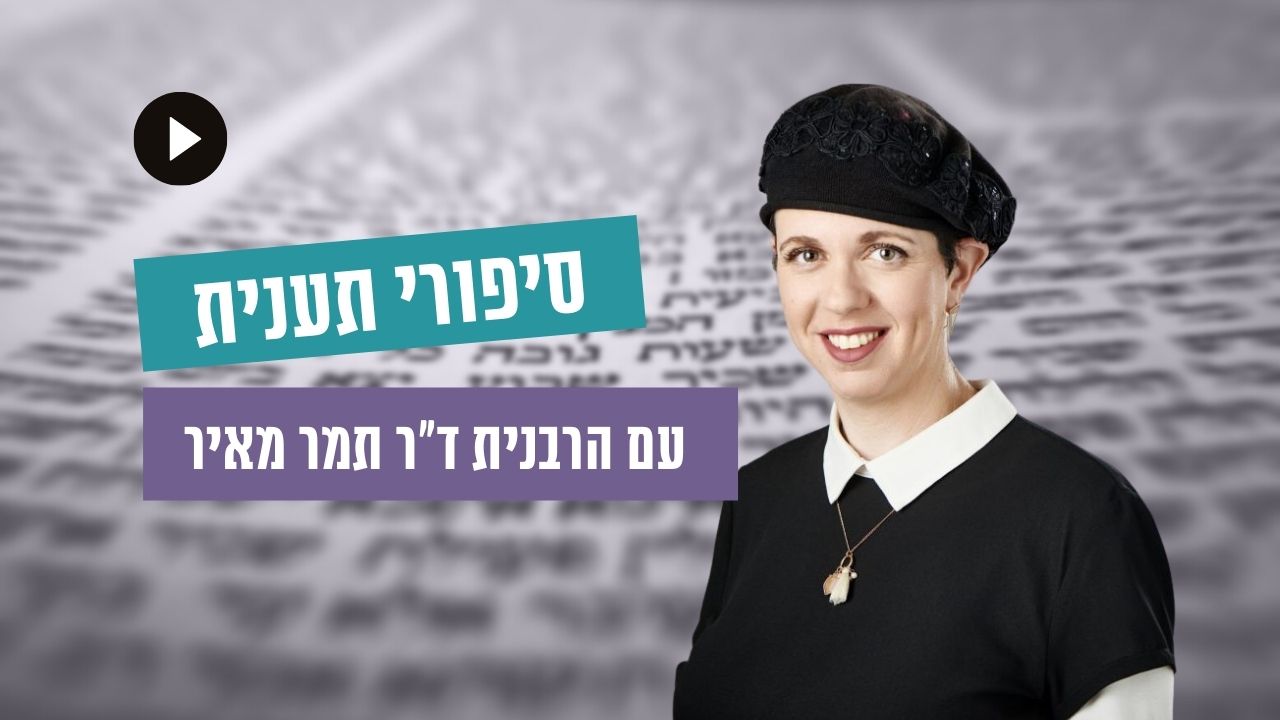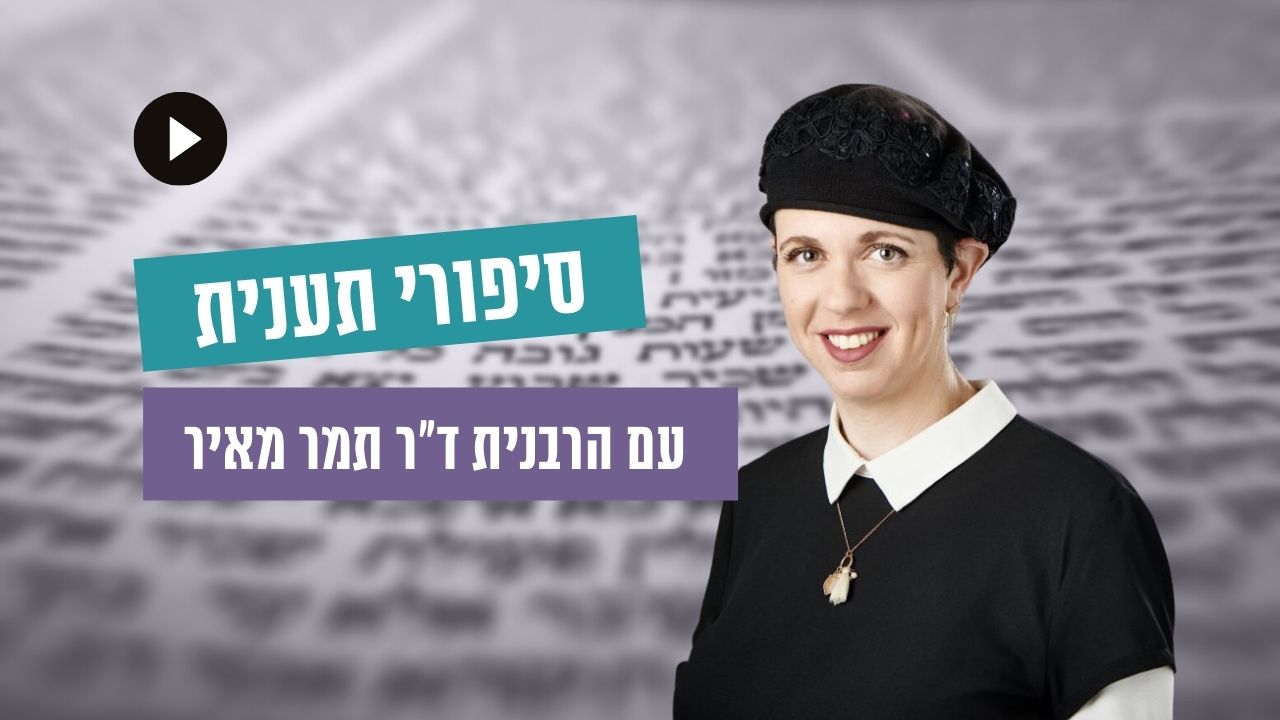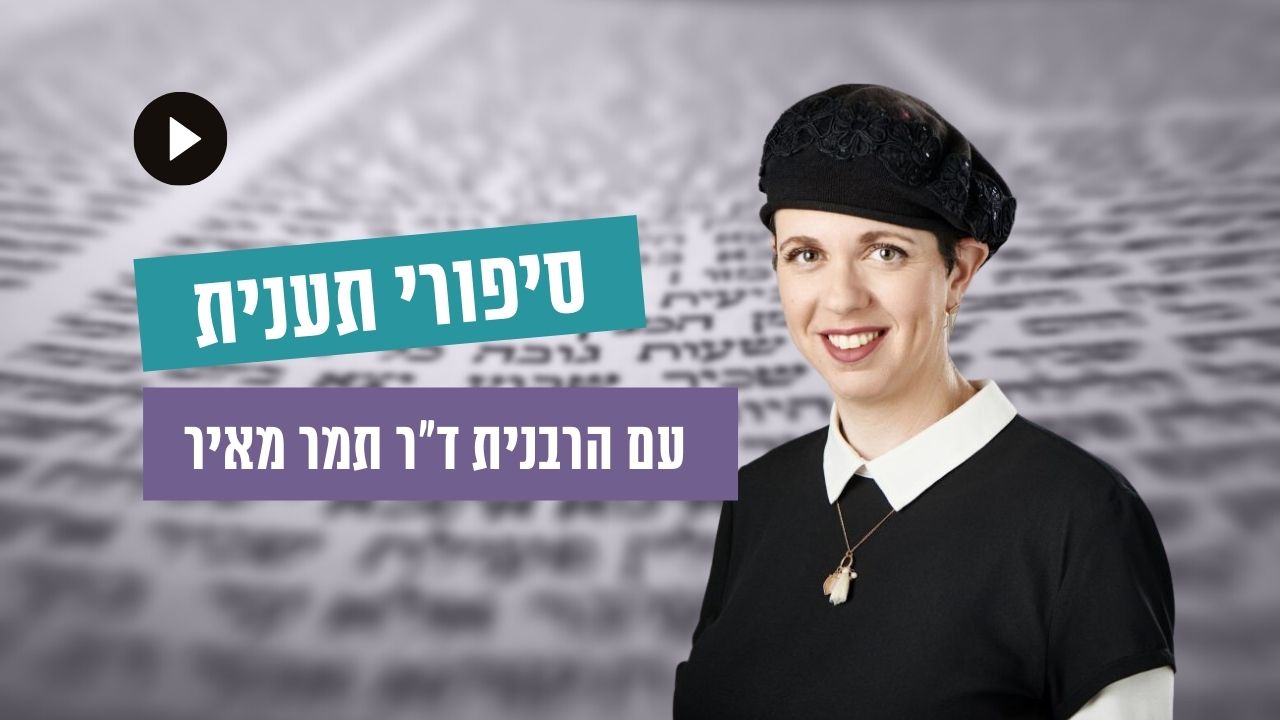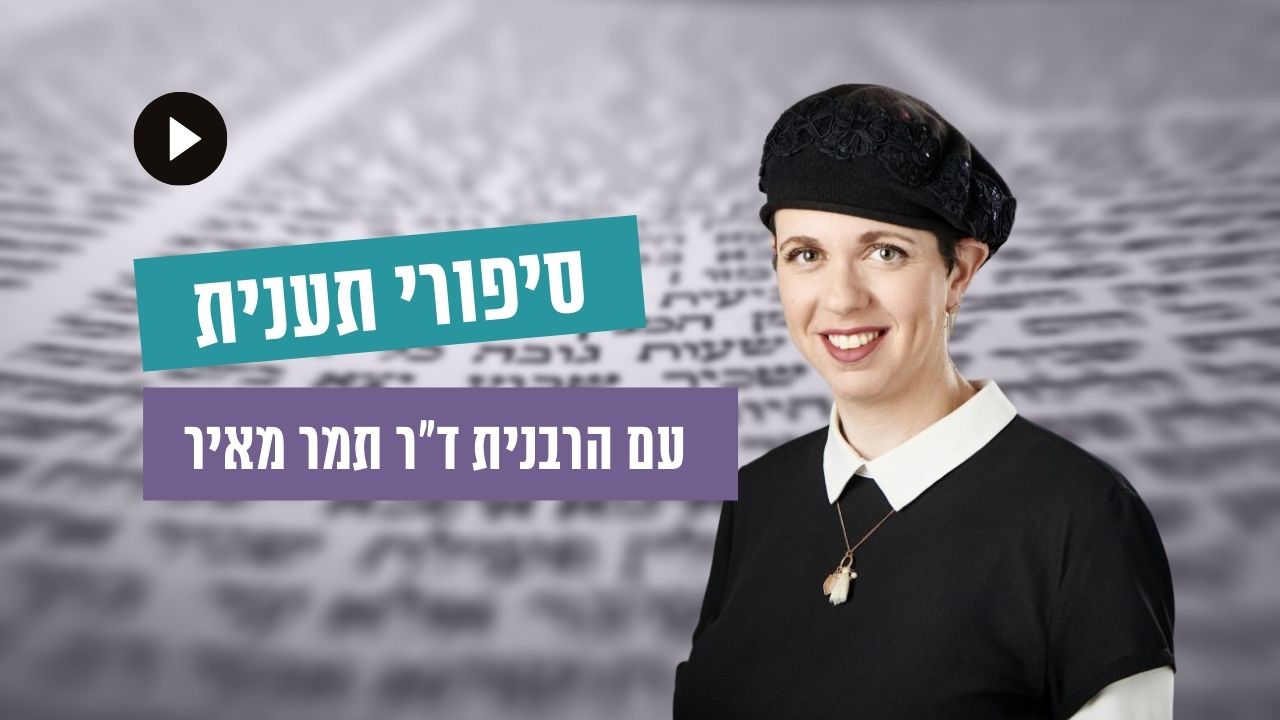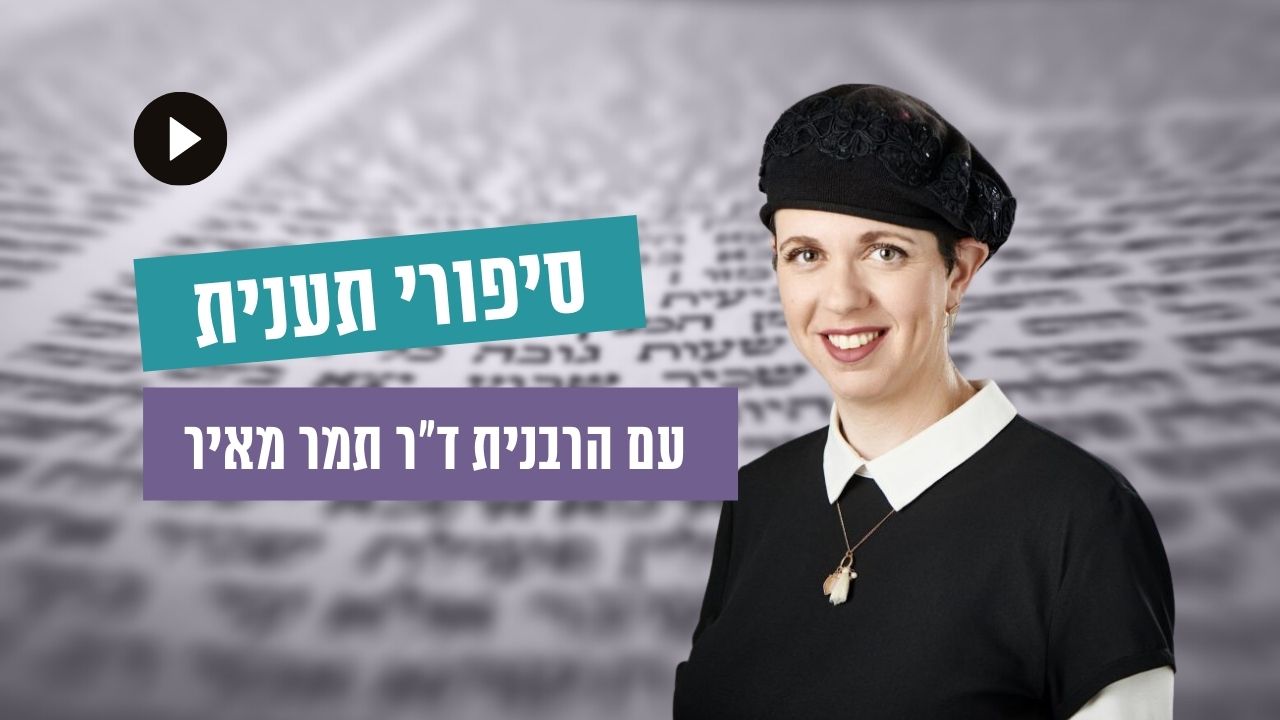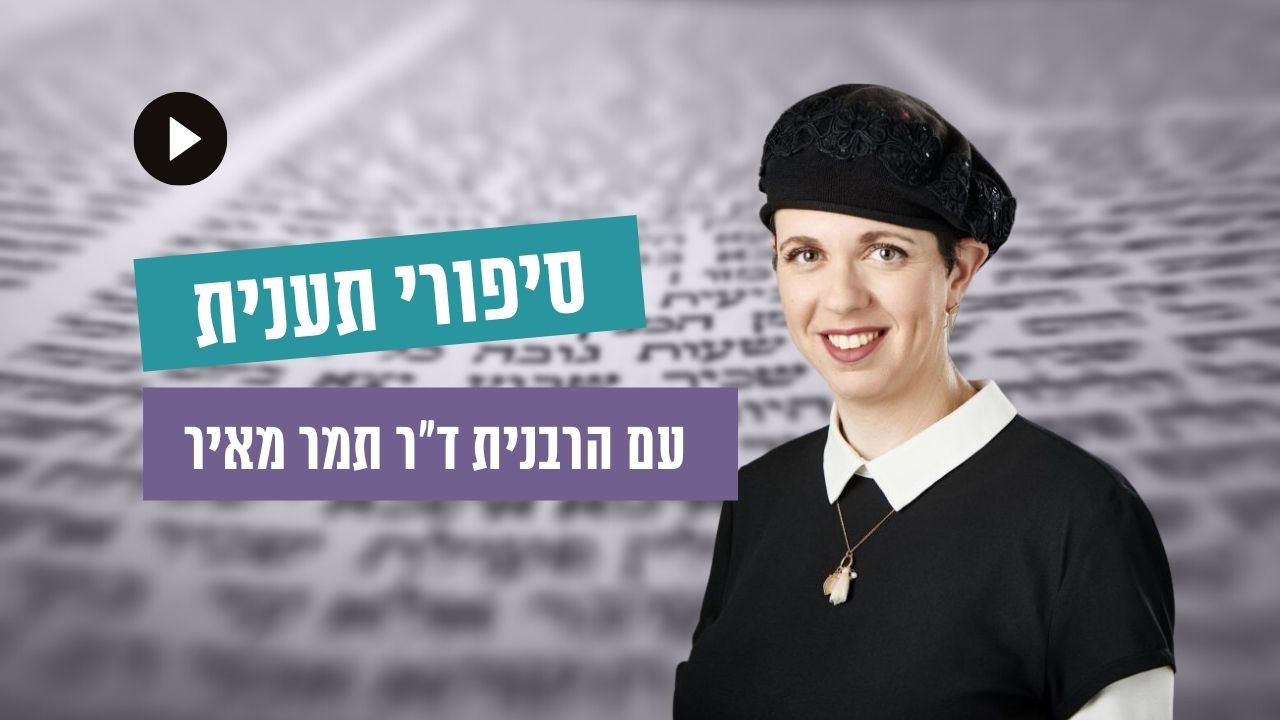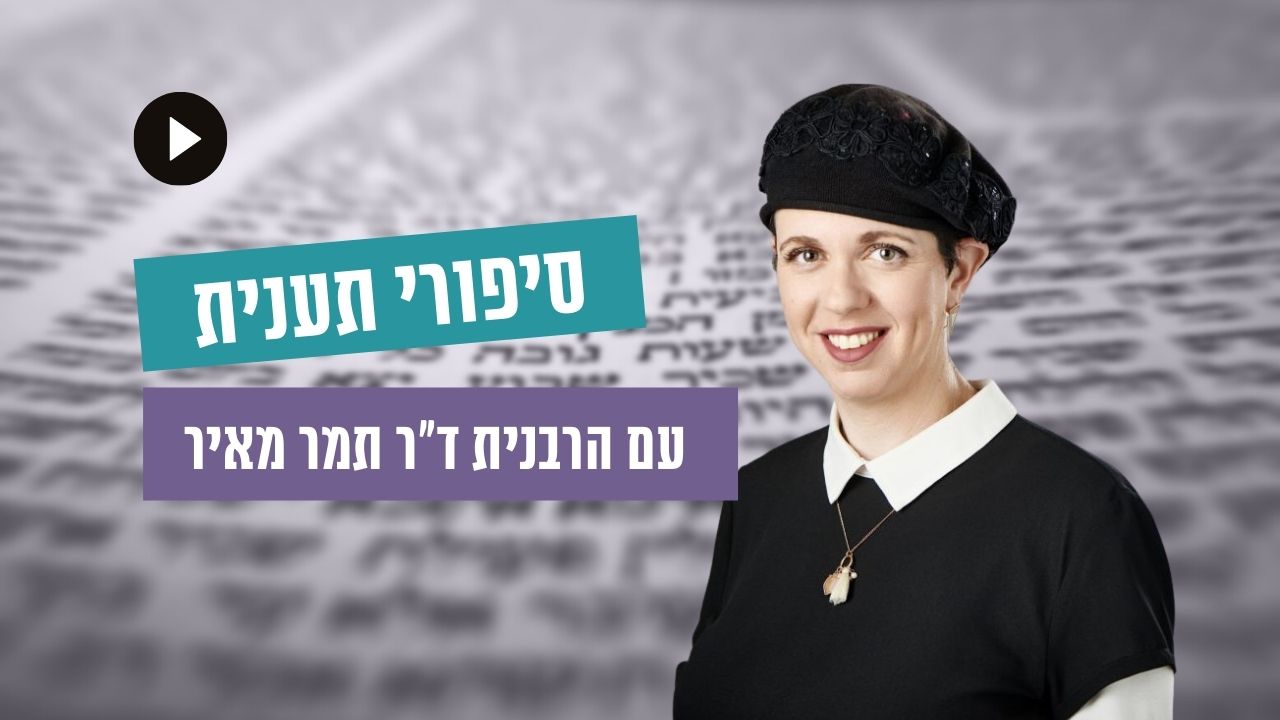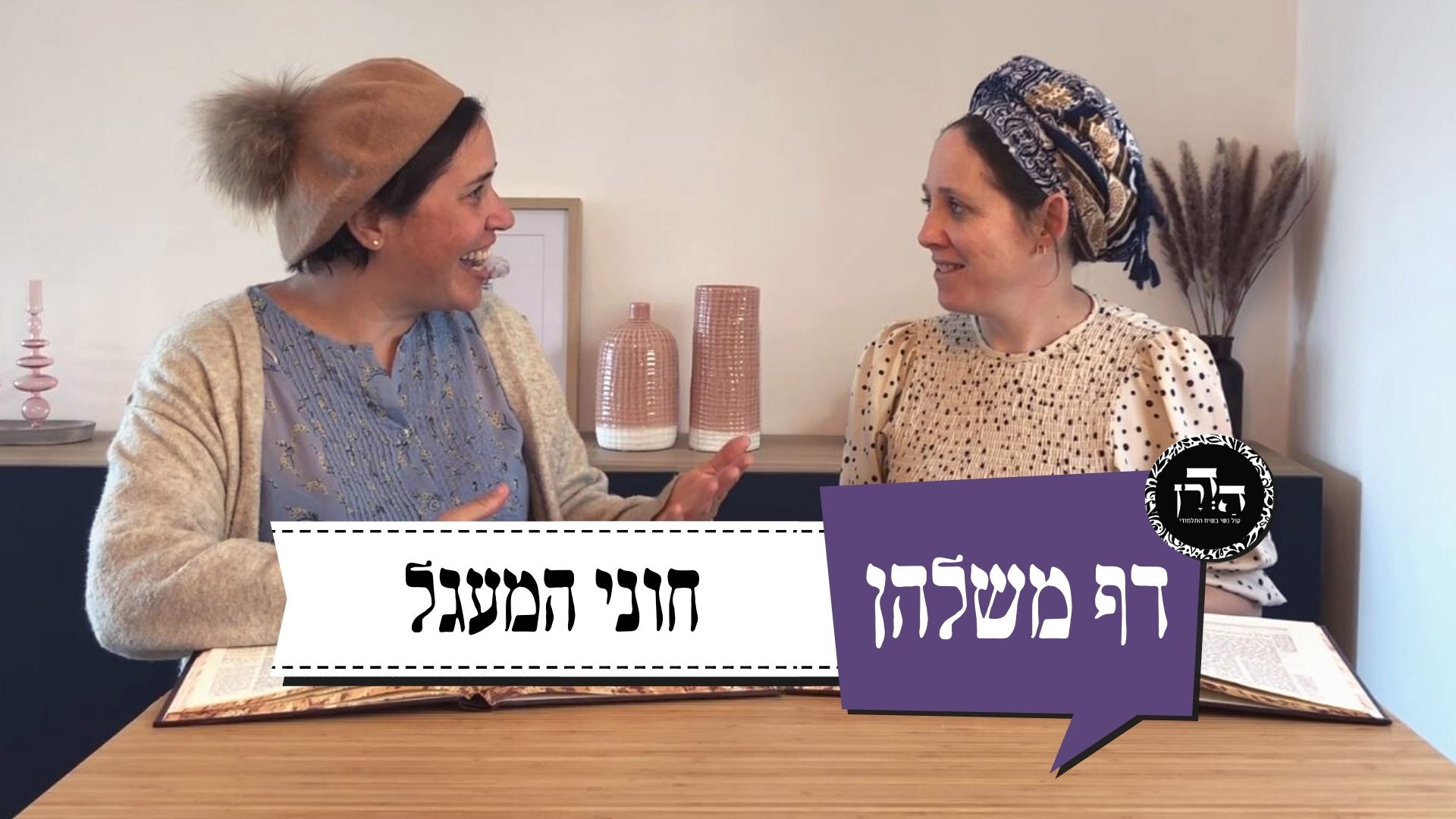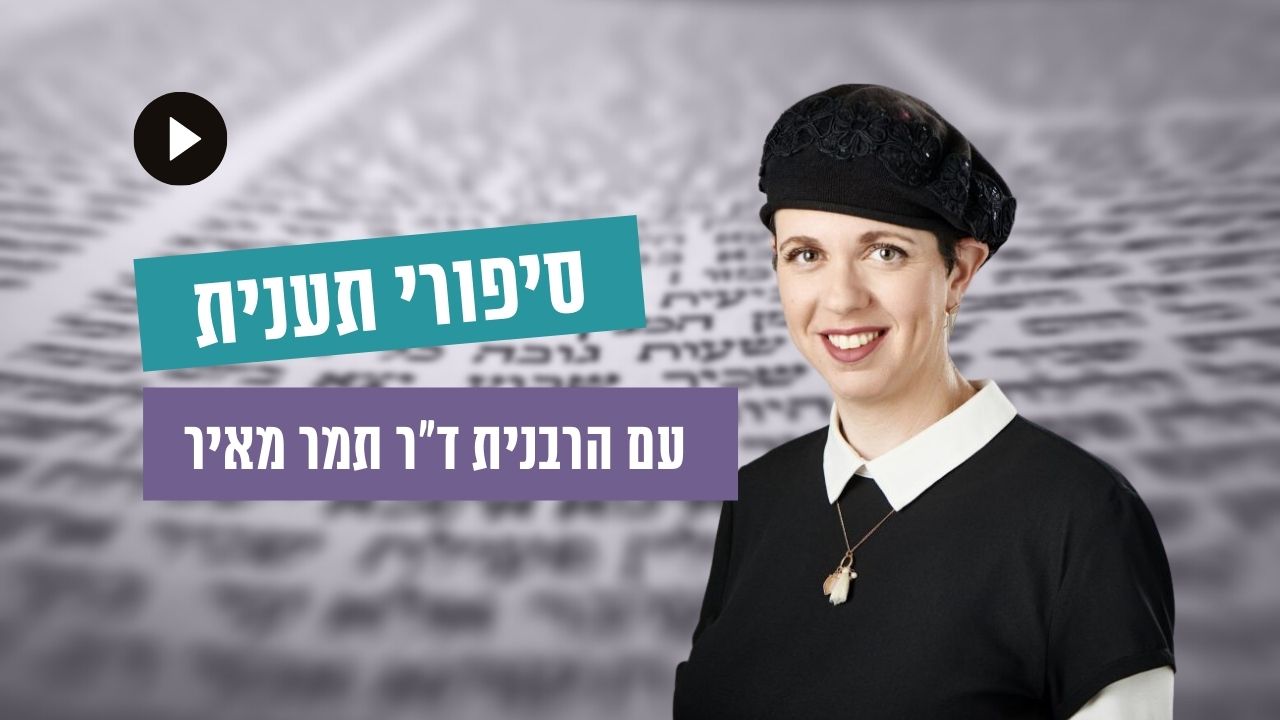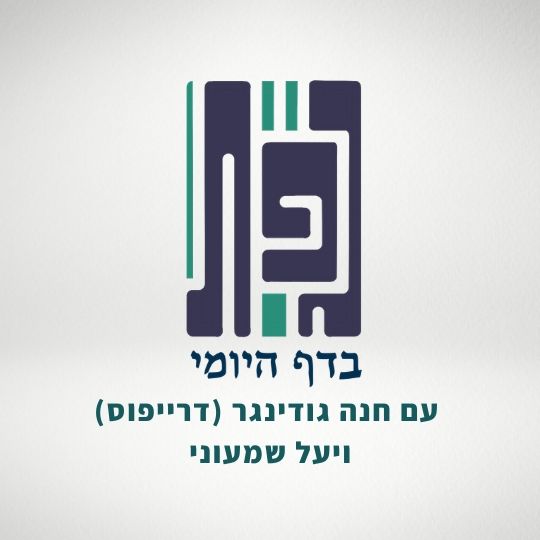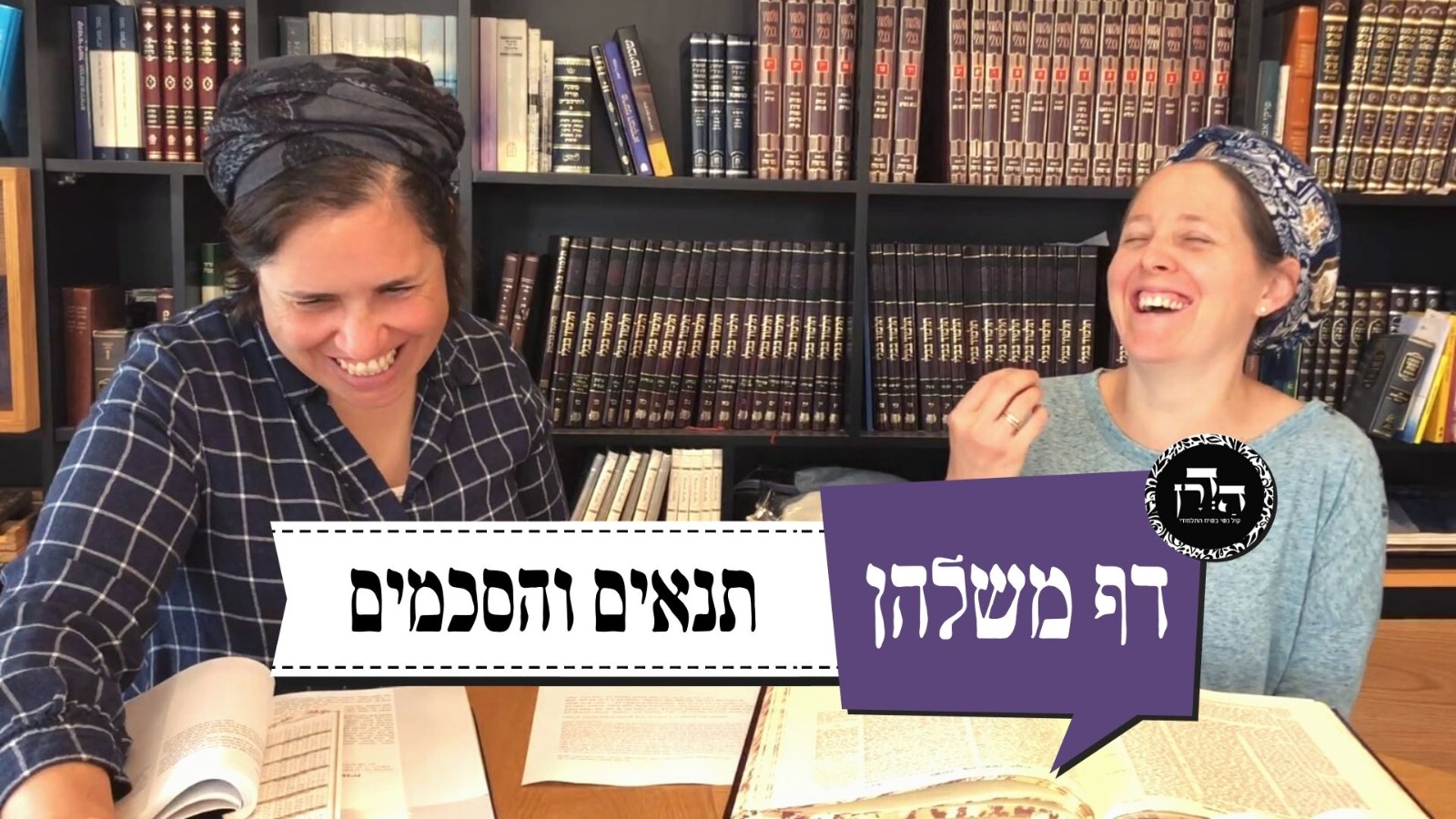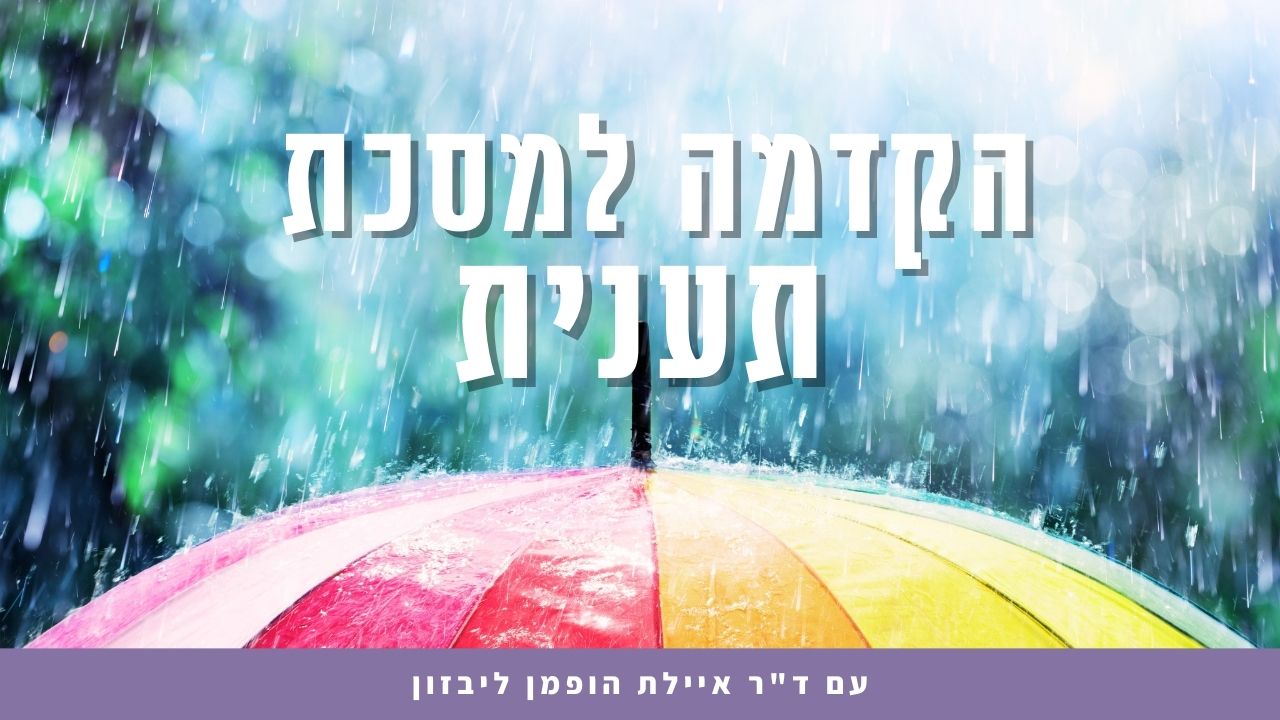רבי חנינא בן דוסא היה כל כך עני עד שאשתו העמידה פנים שיש להם אוכל. מובא סיפור כדי להדגיש זאת. יום אחד היא דחפה את רבי חנינא להתפלל כדי לשים קץ לעוני שלהם, אבל כשתפילותיהם נענות והם מקבלים מתנה של זהב, הם מבינים שיש מחיר כבד לשלם והם מבקשים מהקב”ה לקחת אותה בחזרה. יש כמה סיפורים על ניסים אחרים שרבי חנינא בן דוסא עשה, בחלקם מעורבים שכנים שלו. גם רבי אלעזר בן פדת היה עני מאוד ולא היה לו מה לאכול לאחר הקזת דם ולכן אכל שן של שום. הוא נהיה חלש ונרדם ותוך כדי שינה כמה דברים מוזרים קרו וכשהוא התעורר, הרבנים בקשו ממנו להסביר מה קרה לו. הוא מספר על שיחה שניהל עם הקב”ה בחלומו. מספר סיפורים נוספים מספרים על תקופות בלי גשמים ודרכים שונות שבהן הצליחו הרבנים בסופו של דבר להביא את הגשמים. מדוע צדיקים משווים גם לארז וגם לתמר (בתהלים צב:יג). מדוע התקבלה תפילת רבי עקיבא לגשם כאשר תפילתו של רבי אליעזר בן הורקנוס לא התקבלה? כמה כמות גשמים מספיקה כדי לבטל את התענית? אם יורד גשם באיזו שעה ביום הם מבטלים את הצום לאותו היום? ישנן שלוש דעות שונות – זריחה, חצות או תשע שעות ביום. שמואל הקטן חשב שאם יורד גשם ממש לפני תחילת הצום או בסוף היום, זה סימן רע – שאו שה’ לא רוצה לשמוע את תפילתנו או שה’ רוצה לייסר אותנו. אבל אם יבואו הגשמים בדיוק כשאומר השליח ציבור "משיב הרוח ומוריד הגשם” זהו סימן טוב. כשהגיעו הגשמים ביום של תענית בלוד שברו את הצום ואז אמרו הלל. מדוע לא קראו הלל לפני שאכלו?
הלימוד החודש מוקדש לרפואת פיליס הכט, גיטל פעשא בת מאשה רחל על ידי חברותיה הרבות שאוהבות ומעריכות אותה.
הלימוד השבוע מוקדש ע”י נירה פלדמן לע”נ פיי דרק.
הלימוד השבוע מוקדש ע”י נירה פלדמן לע”נ פיי דרק.
רוצה להקדיש שיעור?

כלים
הלימוד החודש מוקדש לרפואת פיליס הכט, גיטל פעשא בת מאשה רחל על ידי חברותיה הרבות שאוהבות ומעריכות אותה.
הלימוד השבוע מוקדש ע”י נירה פלדמן לע”נ פיי דרק.
הלימוד השבוע מוקדש ע”י נירה פלדמן לע”נ פיי דרק.
כלים
העמקה
רוצה להבין מה באמת קורה מתחת לפני השטח של הסוגיה?
שיעורים, פודקאסטים והרחבות של מיטב המורות שלנו יפתחו לך עוד זוויות וכיווני חשיבה.
חדשה בלימוד הגמרא?
זה הדף הראשון שלך? איזו התרגשות עצומה! יש לנו בדיוק את התכנים והכלים שיעזרו לך לעשות את הצעדים הראשונים ללמידה בקצב וברמה שלך, כך תוכלי להרגיש בנוח גם בתוך הסוגיות המורכבות ומאתגרות.
פסיפס הלומדות שלנו
גלי את קהילת הלומדות שלנו, מגוון נשים, רקעים וסיפורים. כולן חלק מתנועה ומסע מרגש ועוצמתי.
תענית כה
מִשּׁוּם כִּיסּוּפָא. הֲוָה לַהּ הָךְ שִׁיבָבְתָא בִּישְׁתָּא, אֲמַרָה: מִכְּדֵי יָדַעְנָא דְּלֵית לְהוּ וְלָא מִידֵּי, מַאי כּוּלֵּי הַאי? אֲזַלָא וּטְרַפָא אַבָּבָא, אִיכַּסְפָא וַעֲיַילָא לְאִינְדְּרוֹנָא,
due to embarrassment, to make it appear that she was baking, despite the fact that there was no bread in her house. She had a certain evil neighbor who said to herself: Now, I know that they have nothing. What, then, is all this smoke? She went and knocked on the door to find out what was in the oven. Rabbi Ḥanina ben Dosa’s wife was embarrassed, and she ascended to an inner room [inderona].
אִיתְעֲבִיד לַהּ נִסָּא דְּחָזְיָא לְתַנּוּרָא מְלֵא לַחְמָא וְאַגָּנָא מְלֵא לֵישָׁא, אֲמַרָה לַהּ: פְּלָנִיתָא, פְּלָנִיתָא! אַיְיתַי מָסָא, דְּקָא חֲרִיךְ לַחְמִיךְ. אֲמַרָה לָהּ: אַף אֲנָא לְהָכִי עֲיַילִי. תָּנָא: אַף הִיא לְהָבִיא מַרְדֶּה נִכְנְסָה, מִפְּנֵי שֶׁמְּלוּמֶּדֶת בְּנִסִּים.
A miracle was performed for Rabbi Ḥanina ben Dosa’s wife, as her neighbor saw the oven filled with bread and the kneading basin filled with dough. She said to Rabbi Ḥanina’s wife, calling her by name: So-and-so, so-and-so, bring a shovel, as your bread is burning. She said to her neighbor: I too went inside for that very purpose. A tanna taught: She too had entered the inner room to bring a shovel, because she was accustomed to miracles and anticipated that one would occur to spare her embarrassment.
אֲמַרָה לֵיהּ דְּבֵיתְהוּ: עַד אֵימַת נֵיזִיל וְנִצְטַעַר כּוּלֵּי הַאי? אֲמַר לַהּ: מַאי נַעֲבֵיד? בְּעִי רַחֲמֵי דְּנִיתְּבוּ לָךְ מִידֵּי. בְּעָא רַחֲמֵי, יָצְתָה כְּמִין פִּיסַּת יָד וִיהַבוּ לֵיהּ חַד כַּרְעָא דְּפָתוּרָא דְּדַהֲבָא. חָזְיָא בְּחֶלְמָא, עֲתִידִי צַדִּיקֵי דְּאָכְלִי אַפָּתוּרָא דְּדַהֲבָא דְּאִית לֵיהּ תְּלָת כַּרְעֵי, וְאִיהוּ — אַפָּתוּרָא דִּתְרֵי כַּרְעֵי.
The Gemara further relates: Rabbi Ḥanina’s wife said to him: Until when will we continue to suffer this poverty? He said to her: What can we do? She responded: Pray for mercy that something will be given to you from Heaven. He prayed for mercy and something like the palm of a hand emerged and gave him one leg of a golden table. That night, his wife saw in a dream that in the future, i.e., in the World-to-Come, the righteous will eat at a golden table that has three legs, but she will be eating on a table that has two legs.
אֲמַר לַהּ: נִיחָא לָךְ דְּמֵיכָל אָכְלִי כּוּלֵּי עָלְמָא אַפָּתוּרָא דְּמַשְׁלַם וַאֲנַן אַפָּתוּרָא דִּמְחַסַּר. אֲמַרָה לֵיהּ: וּמַאי נַעֲבֵיד? בְּעִי רַחֲמֵי דְּנִשְׁקְלִינְהוּ מִינָּךְ. בָּעֵי רַחֲמֵי וְשַׁקְלוּהוּ. תָּנָא: גָּדוֹל הָיָה נֵס אַחֲרוֹן יוֹתֵר מִן הָרִאשׁוֹן. דִּגְמִירִי, דְּמֵיהָב יָהֲבִי מִישְׁקָל לָא שָׁקְלִי.
When she told her husband this story, he said to her: Are you content that everyone will eat at a complete table and we will eat at a defective table? She said to him: But what can we do? Pray for mercy, that the leg of the golden table should be taken from you. He prayed for mercy, and it was taken from him. A tanna taught in a baraita: The last miracle was greater than the first, as it is learned as a tradition that Heaven gives but does not take back.
חַד בֵּי שִׁמְשֵׁי חַזְיַיהּ לְבַרְתֵּיהּ דַּהֲווֹת עֲצִיבָא, אֲמַר לַהּ: בִּתִּי אַמַּאי עֲצִיבַתְּ? אֲמַרָה לֵיהּ: כְּלִי שֶׁל חוֹמֶץ נִתְחַלֵּף לִי בִּכְלִי שֶׁל שֶׁמֶן וְהִדְלַקְתִּי מִמֶּנּוּ אוּר לְשַׁבָּת. אֲמַר לַהּ: בִּתִּי, מַאי אִכְפַּת לִךְ? מִי שֶׁאָמַר לַשֶּׁמֶן וְיִדְלוֹק, הוּא יֹאמַר לַחוֹמֶץ וְיִדְלוֹק. תָּנָא: הָיָה דּוֹלֵק וְהוֹלֵךְ כׇּל הַיּוֹם כּוּלּוֹ, עַד שֶׁהֵבִיאוּ מִמֶּנּוּ אוּר לְהַבְדָּלָה.
The Gemara relates that one Shabbat evening, Rabbi Ḥanina ben Dosa saw that his daughter was sad. He said to her: My daughter, why are you sad? She said to him: I confused a vessel of vinegar for a vessel of oil and I lit the Shabbat lamp with vinegar. Soon the lamp will be extinguished and we will be left in the dark. He said to her: My daughter, what are you concerned about? He Who said to the oil that it should burn can say to the vinegar that it should burn. A tanna taught: That lamp burned continuously the entire day, until they brought from it light for havdala.
רַבִּי חֲנִינָא בֶּן דּוֹסָא הֲווֹ לֵיהּ הָנָךְ עִיזֵּי, אֲמַרוּ לֵיהּ: קָא מַפְסְדָן. אֲמַר: אִי קָא מַפְסְדָן — נֵיכְלִינְהוּ דּוּבֵּי, וְאִי לָא — כֹּל חֲדָא וַחֲדָא תַּיְתֵי לְאוּרְתָּא דּוּבָּא בְּקַרְנַיְיהוּ. לְאוּרְתָּא אַיְיתַי כֹּל חֲדָא וַחֲדָא דּוּבָּא בְּקַרְנַיְיהוּ.
Rabbi Ḥanina ben Dosa had some goats. His neighbors said to him: Your goats are damaging our property by eating in our fields. He said to them: If they are causing damage, let them be eaten by bears. But if they are not eating your property, let each of them, this evening, bring a bear impaled between its horns. That evening, each one brought in a bear impaled between its horns.
הֲוָה לֵיהּ הָהִיא שִׁיבָבְתָא דְּקָא בָנְיָא בֵּיתָא וְלָא מְטוֹ כְּשׁוּרֵי. אָתְיָא לְקַמֵּיהּ, אֲמַרָה לֵיהּ: בְּנֵיתִי בֵּיתִי וְלָא קָמָטוּ כְּשׁוּרַאי. אֲמַר לַהּ: מָה שְׁמִךְ? אֲמַרָה לֵיהּ: אֵיכוּ. אָמַר: אֵיכוּ נִימְטוֹ כְּשׁוּרִיךְ.
Rabbi Ḥanina ben Dosa had a certain neighbor who was building a house, but the ceiling beams were not long enough to reach from one wall to the other. She came before Rabbi Ḥanina ben Dosa and said to him: I built my house, but my ceiling beams do not reach the walls. He said to her: What is your name? She said to him: My name is Ikku. He said: If so [ikku], may your beams reach your walls.
תָּנָא: הִגִּיעוּ עַד שֶׁיָּצְאוּ אַמָּה לְכָאן וְאַמָּה לְכָאן. וְיֵשׁ אוֹמְרִין: סְנִיפִין עֲשָׂאוּם. תַּנְיָא, פְּלֵימוֹ אוֹמֵר: אֲנִי רָאִיתִי אוֹתוֹ הַבַּיִת, וְהָיוּ קוֹרוֹתָיו יוֹצְאוֹת אַמָּה לְכָאן וְאַמָּה לְכָאן, וְאָמְרוּ לִי: בַּיִת זֶה שֶׁקֵּירָה רַבִּי חֲנִינָא בֶּן דּוֹסָא בִּתְפִלָּתוֹ.
A tanna taught: The beams were lengthened to such an extent that they not only reached the walls, but they continued until they jutted out a cubit from this side and a cubit from that side. And some say that they extended with segments [senifin], adding new walls at both ends of the beams. It is taught in a baraita that the Sage Palaimo says: I saw that house, and its beams jutted out a cubit on this side and a cubit on that side. And they said to me: This is the house that Rabbi Ḥanina ben Dosa roofed by means of his prayer.
וְרַבִּי חֲנִינָא בֶּן דּוֹסָא מֵהֵיכָן הֲווֹ לֵיהּ עִזִּים? וְהָא עָנִי הֲוֵי! וְעוֹד, אָמְרוּ חֲכָמִים: אֵין מְגַדְּלִין בְּהֵמָה דַּקָּה בְּאֶרֶץ יִשְׂרָאֵל? אָמַר רַב פִּנְחָס: מַעֲשֶׂה וְעָבַר אָדָם אֶחָד עַל פֶּתַח בֵּיתוֹ וְהִנִּיחַ שָׁם תַּרְנְגוֹלִין, וּמְצָאָתַן אִשְׁתּוֹ שֶׁל רַבִּי חֲנִינָא בֶּן דּוֹסָא,
The Gemara asks a question about one of the details of this story. And Rabbi Ḥanina ben Dosa, from where did he have goats? Wasn’t he poor, as stated above? And furthermore, the Sages have said: One may not raise small, domesticated animals in Eretz Yisrael, as they destroy the fields and property of others. How, then, could Rabbi Ḥanina ben Dosa raise goats? Rav Pineḥas said that this is how it came to pass: An incident occurred in which a certain man passed by the entrance of Rabbi Ḥanina’s house and left chickens there. And Rabbi Ḥanina ben Dosa’s wife found them and cared for them.
וְאָמַר לָהּ: אַל תֹּאכְלִי מִבֵּיצֵיהֶן. וְהִרְבּוּ בֵּיצִים וְתַרְנְגוֹלִין וְהָיוּ מְצַעֲרִין אוֹתָם, וּמְכָרָן וְקָנָה בִּדְמֵיהֶן עִזִּים. פַּעַם אַחַת עָבַר אוֹתוֹ אָדָם שֶׁאָבְדוּ מִמֶּנּוּ הַתַּרְנְגוֹלִין וְאָמַר לַחֲבֵירוֹ: בְּכָאן הִנַּחְתִּי הַתַּרְנְגוֹלִין שֶׁלִּי. שָׁמַע רַבִּי חֲנִינָא, אָמַר לוֹ: יֵשׁ לְךָ בָּהֶן סִימָן? אָמַר לוֹ: הֵן. נָתַן לוֹ סִימָן וְנָטַל אֶת הָעִיזִּין, וְהֵן הֵן עִיזֵּי דְּאַיְיתוֹ דּוּבֵּי בְּקַרְנַיְיהוּ.
And Rabbi Ḥanina said her: Do not eat of their eggs, as they are not ours. And the chickens laid many eggs, and chickens hatched from the eggs. And as the noise and mess of the chickens were distressing them, they sold them and bought goats with their proceeds. Once that same man who lost the chickens passed by and said to his companion: Here is where I left my chickens. Rabbi Ḥanina heard this and said to him: Do you have a sign by which to identify them? He said to him: Yes. He gave him the sign and took the goats. The Gemara concludes: And these are the very goats that brought bears impaled between their horns.
רַבִּי אֶלְעָזָר בֶּן פְּדָת דְּחִיקָא לֵיהּ מִילְּתָא טוּבָא. עֲבַד מִלְּתָא וְלָא הֲוָה לֵיהּ מִידֵּי לְמִטְעַם, שְׁקַל בְּרָא דְתוּמָא וְשַׁדְיֵיהּ בְּפוּמֵּיהּ, חֲלַשׁ לִבֵּיהּ וְנִים. אֲזוּל רַבָּנַן לְשַׁיּוֹלֵי בֵּיהּ, חַזְיוּהּ דְּקָא בָכֵי וְחָיֵיךְ, וּנְפַק צוּצִיתָא דְנוּרָא מֵאַפּוּתֵיהּ.
§ The Gemara relates more stories of desperately poor righteous individuals. Rabbi Elazar ben Pedat was hard-pressed for money. Once an act of bloodletting was performed on him, but he did not have anything to taste afterward. He took a clove of garlic and put it in his mouth. His heart became weak and he fell asleep. The Sages came to inquire about his welfare. They saw him weeping and laughing, and a ray of light was shining from his forehead.
כִּי אִתְּעַר, אֲמַרוּ לֵיהּ: מַאי טַעְמָא קָבָכֵית וְחָיְיכַתְּ? אֲמַר לְהוּ: דַּהֲוָה יָתֵיב עִמִּי הַקָּדוֹשׁ בָּרוּךְ הוּא, וַאֲמַרִי לֵיהּ: עַד מָתַי אֶצְטַעַר בְּהַאי עָלְמָא? וַאֲמַר לִי: אֶלְעָזָר בְּנִי, נִיחָא לָךְ דְּאֵפְכֵיהּ לְעָלְמָא מֵרֵישָׁא, אֶפְשָׁר דְּמִתְיַלְּדַתְּ בְּשַׁעְתָּא דִמְזוֹנֵי.
When he awoke they said to him: What is the reason that you were laughing and crying? He said to them: The reason is that in my dream the Holy One, Blessed be He, was sitting with me, and I said to Him: Until when will I suffer such poverty in this world? And He said to me: Elazar, My son, is it more convenient for you that I return the world to its very beginning? Perhaps you will be born in an hour of sustenance and not be poor.
אֲמַרִי לְקַמֵּיהּ: כּוּלֵּי הַאי, וְאֶפְשָׁר? אֲמַרִי לֵיהּ: דַּחֲיַי טְפֵי אוֹ דְחָיֵינָא? אֲמַר לִי: דַּחֲיֵית. אֲמַרִי לְקַמֵּיהּ: אִם כֵּן, לָא בָּעֵינָא.
I said before Him: You suggest doing all this, to return the world to its beginning, and even then is it only a possibility that things will be different, not a certainty? I said to Him: Are the years that I have already lived more numerous, or are that I will live more numerous? He said to me: Those years that you have lived are greater. I said before Him: If so, I do not want You to recreate the world for the sake of a brief few years.
אֲמַר לִי: בְּהַאי אַגְרָא דַּאֲמַרְתְּ ״לָא בָּעֵינָא״ יָהֵיבְנָא לָךְ לְעָלְמָא דְּאָתֵי תְּלֵיסְרֵי נַהְרָווֹתָא דְמִשְׁחָא אֲפַרְסְמוֹן דָּכַיִין כִּפְרָת וְדִיגְלַת, דְּמִעַנְּגַתְּ בְּהוּ. אֲמַרִי לְקַמֵּיהּ: הַאי וְתוּ לָא? אֲמַר לִי: וּלְחַבְרָךְ מַאי יָהֵיבְנָא? אֲמַרִי לֵיהּ: וַאֲנָא מִגַּבְרָא דְּלֵית לֵיהּ בָּעֵינָא? מַחְיַין בְּאִסְקוּטְלָא אַפּוּתַאי, וַאֲמַר לִי: אֶלְעָזָר בְּרִי, גָּרוֹ בָּךְ גִּירַי.
He said to me: As a reward for saying: I do not want, I will give you in the World-to-Come thirteen rivers of pure balsam oil as large as the Euphrates and the Tigris for you to enjoy. I said before Him: This and no more? He said to me: But if I give you more, what will I give to your colleagues? I said to Him: And do I request this from a person, who does not have enough? You are omnipotent. He playfully snapped His finger [askutla] on my forehead and said to me: Elazar, my son, My arrows I cast upon you, My arrows. This touch caused the ray of light to shine from his forehead.
רַבִּי חָמָא בַּר חֲנִינָא גְּזַר תַּעֲנִיתָא וְלָא אֲתָא מִיטְרָא. אֲמַרוּ לֵיהּ: וְהָא רַבִּי יְהוֹשֻׁעַ בֶּן לֵוִי גָּזַר תַּעֲנִיתָא וְאָתֵי מִיטְרָא! אֲמַר לְהוּ: הָא אֲנָא, הָא בַּר לֵיוַאי. אֲמַרוּ לֵיהּ: דְּנֵיתֵי וְנִיכַוֵּין דַּעְתִּין, אֶפְשָׁר דְּתָבְרִי צִיבּוּרָא לִבַּיְיהוּ דְּאָתֵי מִיטְרָא. בְּעוֹן רַחֲמֵי וְלָא אָתֵי מִיטְרָא.
The Gemara returns to the topic of fasting for rain. Rabbi Ḥama bar Ḥanina decreed a fast but rain did not come. They said to him: Didn’t Rabbi Yehoshua ben Levi decree a fast and rain came? He said to them: This is I; this is a son of a Levite, i.e., we are two different people of unequal stature. They said to him: Let us come and focus our minds. Perhaps the hearts of the members of the community will break and rain will come. They prayed for mercy, but rain did not come.
אֲמַר לְהוּ: נִיחָא לְכוּ שֶׁיָּבֹא מָטָר בִּשְׁבִילֵנוּ? אֲמַרוּ לֵיהּ: הֵן. אָמַר: רָקִיעַ רָקִיעַ כַּסֵּי פָּנֶיךָ! לָא אִיכַּסִּי. אֲמַר: כַּמָּה עַזִּין פְּנֵי רָקִיעַ, אִיכַּסִּי וַאֲתָא מִיטְרָא.
Rabbi Ḥama bar Ḥanina said to them: Are you content that rain should come on our account, and through our merit? They said to him: Yes. He said: Skies, skies, cover your face with clouds. The sky was not covered with clouds. He said in rebuke: How impudent is the face of the sky, to ignore me. The sky became covered with clouds and rain came.
לֵוִי גְּזַר תַּעֲנִיתָא וְלָא אֲתָא מִיטְרָא. אָמַר לְפָנָיו: רִבּוֹנוֹ שֶׁל עוֹלָם! עָלִיתָ וְיָשַׁבְתָּ בַּמָּרוֹם וְאֵין אַתָּה מְרַחֵם עַל בָּנֶיךָ. אֲתָא מִיטְרָא, וְאִיטְּלַע. אָמַר רַבִּי אֶלְעָזָר: לְעוֹלָם אַל יָטִיחַ אָדָם דְּבָרִים כְּלַפֵּי מַעְלָה, שֶׁהֲרֵי אָדָם גָּדוֹל הֵטִיחַ דְּבָרִים כְּלַפֵּי מַעְלָה וְאִיטְּלַע, וּמַנּוּ — לֵוִי.
The Gemara relates a similar story. Levi decreed a fast but rain did not come. He said before God: Master of the Universe, You have ascended and sat up high, and You do not have mercy upon Your children. Rain came, but as a punishment for his harsh statement toward God, Levi became lame. Consequently, Rav Elazar said: A person should never cast harsh statements toward God on High, as a great person cast statements toward God on High, and he became lame. And who was this individual? Levi.
הָא גְּרַמָא לֵיהּ? וְהָא לֵוִי אַחְוִי קִידָּה קַמֵּיהּ דְּרַבִּי, וְאִיטְּלַע! הָא וְהָא גְּרַמָא לֵיהּ.
The Gemara asks: And did this comment of Levi’s cause him to become lame? But it is stated that Levi demonstrated kidda, a particular type of bowing on one’s face, performed by the High Priest, before Rabbi Yehuda HaNasi, and he became lame as a result (see Megilla 22b). The Gemara explains: Both this and that caused his lameness. As a punishment for acting improperly, he suffered an injury while he was attempting a difficult physical feat and was vulnerable.
רַבִּי חִיָּיא בַּר לוּלְיָינִי שַׁמְעִינְהוּ לְהָנָךְ עֲנָנֵי דְּקָאָמְרִי: נֵיתוֹ וְנִישְׁדֵּי מַיָּא בְּעַמּוֹן וּמוֹאָב. אָמַר לְפָנָיו: רִבּוֹנוֹ שֶׁל עוֹלָם! כְּשֶׁנָּתַתָּ תּוֹרָה לְעַמְּךָ יִשְׂרָאֵל חִזַּרְתָּ עַל כׇּל אוּמּוֹת הָעוֹלָם וְלֹא קִיבְּלוּהָ, וְעַכְשָׁיו אַתָּה נוֹתֵן לָהֶם מָטָר? שְׁדוֹ הָכָא. שַׁדְיוּהּ אַדּוּכְתַּיְהוּ.
The Gemara relates: Rabbi Ḥiyya bar Lulyani heard these clouds saying to one another, let us go and bring water for Ammon and Moab in Transjordan. He said before God: Master of the Universe, when You gave Your Torah to Your nation Israel, You approached all the nations of the world to see if they would accept the Torah, and they did not accept it. And yet now You are giving them rain. Throw the water here. The clouds threw the rain in their place in Eretz Yisrael.
דָּרֵשׁ רַבִּי חִיָּיא בַּר לוּלְיָינִי, מַאי דִּכְתִיב: ״צַדִּיק כַּתָּמָר יִפְרָח כְּאֶרֶז בַּלְּבָנוֹן יִשְׂגֶּה״, אִם נֶאֱמַר תָּמָר לָמָּה נֶאֱמַר אֶרֶז, וְאִם נֶאֱמַר אֶרֶז לָמָּה נֶאֱמַר תָּמָר? אִילּוּ נֶאֱמַר תָּמָר וְלֹא נֶאֱמַר אֶרֶז, הָיִיתִי אוֹמֵר: מָה תָּמָר
Since the Gemara has mentioned Rabbi Ḥiyya bar Lulyani, it cites a statement in his name. Rabbi Ḥiyya bar Lulyani taught: What is the meaning of that which is written: “The righteous shall flourish like the palm tree; he shall grow like a cedar in Lebanon” (Psalms 92:13)? If it is stated “palm tree” why does it state “cedar,” and if it is stated “cedar” why does it state “palm tree”? What is added by this double comparison? He explains: Were it stated “palm tree” and were it not stated “cedar,” I would say that just as in the case of a palm tree,
אֵין גִּזְעוֹ מַחְלִיף, אַף צַדִּיק חַס וְשָׁלוֹם אֵין גִּזְעוֹ מַחְלִיף — לְכָךְ נֶאֱמַר אֶרֶז. אִילּוּ נֶאֱמַר אֶרֶז וְלֹא נֶאֱמַר תָּמָר, הָיִיתִי אוֹמֵר: מָה אֶרֶז אֵין עוֹשֶׂה פֵּירוֹת אַף צַדִּיק חַס וְשָׁלוֹם אֵין עוֹשֶׂה פֵּירוֹת — לְכָךְ נֶאֱמַר תָּמָר וְנֶאֱמַר אֶרֶז.
its shoots do not replenish themselves when its stump is cut down, so too, Heaven forbid, with regard to a righteous person, his shoots will not replenish themselves, i.e., he will be unable to recover from misfortune. Therefore, it is stated “cedar” in the verse. Just as the cedar grows new shoots after its stump is cut down, so too, a righteous individual will thrive again. Conversely, were it stated “cedar” and were it not stated “palm tree,” I would say that just as in the case of a cedar, it does not produce fruit, so too, a righteous man, God forbid, does not produce fruit, i.e., he will have no reward in the World-to-Come. Therefore, it is stated “palm tree” and it is also stated “cedar.”
וְאֶרֶז גִּזְעוֹ מַחְלִיף? וְהָתַנְיָא: הַלּוֹקֵחַ אִילָן מֵחֲבֵירוֹ לָקוֹץ, מַגְבִּיהוֹ מִן הַקַּרְקַע טֶפַח וְקוֹצֵץ. בְּסַדַּן הַשִּׁקְמָה — שְׁנֵי טְפָחִים. בִּבְתוּלַת הַשִּׁקְמָה — שְׁלֹשָׁה טְפָחִים. בְּקָנִים וּבִגְפָנִים — מִן הַפְּקָק וּלְמַעְלָה. בִּדְקָלִים וּבַאֲרָזִים — חוֹפֵר לְמַטָּה וּמַשְׁרִישׁ, לְפִי שֶׁאֵין גִּזְעוֹ מַחְלִיף.
§ The Gemara asks: And do a cedar’s shoots really replenish themselves? But isn’t it taught in a baraita: With regard to one who bought a tree from another to chop it down for wood, without acquiring total ownership of the tree, he must lift his ax a handbreadth and chop there, so as to allow the tree to grow back? However, in a case where he purchased a large sycamore, he must leave two handbreadths. In the case of an untrimmed sycamore, he must leave three handbreadths. In a situation where one bought reeds or grapevines, he may chop only from the first knot and above. In the case of palms or cedars, one may dig down and uproot it, as its shoots will not replenish themselves. This baraita indicates that cedars will not grow new shoots after they have been cut down.
הָכָא בְּמַאי עָסְקִינַן בִּשְׁאָר מִינֵי אֲרָזִים, כִּדְרַבָּה בַּר הוּנָא. דְּאָמַר רַבָּה בַּר הוּנָא: עֲשָׂרָה מִינֵי אֲרָזִים הֵן, שֶׁנֶּאֱמַר: ״אֶתֵּן בַּמִּדְבָּר אֶרֶז שִׁטָּה וַהֲדַס וְגוֹ׳״.
The Gemara answers: With what are we dealing here? With other species of cedars. This is in accordance with the opinion of Rabba bar Huna, as Rabba bar Huna said: There are ten species of cedars, as it is stated: “I will plant in the wilderness the cedar, the acacia tree and myrtle and the oil tree; I will set in the desert cypress, the plane tree and the larch together” (Isaiah 41:19). The seven species mentioned in this verse are all called cedars, as are three additional species.
תָּנוּ רַבָּנַן: מַעֲשֶׂה בְּרַבִּי אֱלִיעֶזֶר שֶׁגָּזַר שְׁלֹשׁ עֶשְׂרֵה תַּעֲנִיּוֹת עַל הַצִּבּוּר וְלֹא יָרְדוּ גְּשָׁמִים, בָּאַחֲרוֹנָה הִתְחִילוּ הַצִּבּוּר לָצֵאת. אָמַר לָהֶם: תִּקַּנְתֶּם קְבָרִים לְעַצְמְכֶם?! גָּעוּ כׇּל הָעָם בִּבְכִיָּה, וְיָרְדוּ גְּשָׁמִים.
The Sages taught: An incident occurred involving Rabbi Eliezer, who decreed a complete cycle of thirteen fasts upon the congregation, but rain did not fall. At the end of the last fast, the congregation began to exit the synagogue. He said to them: Have you prepared graves for yourselves? If rain does not fall, we will all die of hunger. All the people burst into tears, and rain fell.
שׁוּב מַעֲשֶׂה בְּרַבִּי אֱלִיעֶזֶר שֶׁיָּרַד לִפְנֵי הַתֵּיבָה, וְאָמַר עֶשְׂרִים וְאַרְבַּע בְּרָכוֹת וְלֹא נַעֲנָה. יָרַד רַבִּי עֲקִיבָא אַחֲרָיו וְאָמַר: ״אָבִינוּ מַלְכֵּנוּ אֵין לָנוּ מֶלֶךְ אֶלָּא אָתָּה. אָבִינוּ מַלְכֵּנוּ, לְמַעַנְךָ רַחֵם עָלֵינוּ״, וְיָרְדוּ גְּשָׁמִים. הֲווֹ מְרַנְּנִי רַבָּנַן, יָצְתָה בַּת קוֹל וְאָמְרָה: לֹא מִפְּנֵי שֶׁזֶּה גָּדוֹל מִזֶּה, אֶלָּא שֶׁזֶּה מַעֲבִיר עַל מִידּוֹתָיו, וְזֶה אֵינוֹ מַעֲבִיר עַל מִדּוֹתָיו.
There was another incident involving Rabbi Eliezer, who descended to serve as prayer leader before the ark on a fast day. And he recited twenty-four blessings, but he was not answered. Rabbi Akiva descended before the ark after him and said: Our Father, our King, we have no king other than You. Our Father, our King, for Your sake, have mercy on us. And rain immediately fell. The Sages were whispering among themselves that Rabbi Akiva was answered while his teacher, Rabbi Eliezer, was not. A Divine Voice emerged and said: It is not because this Sage, Rabbi Akiva, is greater than that one, Rabbi Eliezer, but that this one is forgiving, and that one is not forgiving. God responded to Rabbi Akiva’s forgiving nature in kind by sending rain.
תָּנוּ רַבָּנַן: עַד מָתַי יְהוּ הַגְּשָׁמִים יוֹרְדִין וְהַצִּבּוּר פּוֹסְקִין מִתַּעֲנִיתָם? כִּמְלֹא בֶּרֶךְ הַמַּחֲרֵישָׁה, דִּבְרֵי רַבִּי מֵאִיר. וַחֲכָמִים אוֹמְרִים: בַּחֲרֵבָה טֶפַח, בְּבֵינוֹנִית טִפְחַיִים, בַּעֲבוּדָה שְׁלֹשָׁה טְפָחִים.
§ The Sages taught in a baraita: How much rain must fall for the community to cease their fast for rain? If the rain penetrates the soil by the full depth of the blade of a plow until the spot where it bends, they may cease fasting; this is the statement of Rabbi Meir. And the Rabbis say a different measurement: If the earth is completely dry, the soil must become moist to the depth of a single handbreadth. For average soil, they must wait until the moisture reaches a depth of two handbreadths. If it is worked soil, i.e., soil that has been plowed, the moisture must reach to a depth of three handbreadths.
תַּנְיָא, רַבִּי שִׁמְעוֹן בֶּן אֶלְעָזָר אוֹמֵר: אֵין לְךָ טֶפַח מִלְּמַעְלָה, שֶׁאֵין תְּהוֹם יוֹצֵא לִקְרָאתוֹ שְׁלֹשָׁה טְפָחִים. וְהָא תַּנְיָא טִפְחַיִים! לָא קַשְׁיָא: כָּאן בַּעֲבוּדָה, כָּאן בְּשֶׁאֵינָהּ עֲבוּדָה.
It is taught in a baraita that Rabbi Shimon ben Elazar says: There is no handbreadth of rain from above toward which the water of the deep does not rise three handbreadths. The Gemara raises an objection: But isn’t it taught in another baraita that the water of the deep rises two handbreadths? The Gemara explains: This is not difficult. Here, in first baraita, it is referring to worked land, which water penetrates faster, whereas there, in the second baraita, it is referring to unworked land, which water does not penetrate as easily, and therefore the water of the deep rises only two handbreadths.
אָמַר רַבִּי אֶלְעָזָר: כְּשֶׁמְּנַסְּכִין אֶת הַמַּיִם בֶּחָג, תְּהוֹם אוֹמֵר לַחֲבֵירוֹ: אַבַּע מֵימֶיךָ, קוֹל שְׁנֵי רֵיעִים אֲנִי שׁוֹמֵעַ. שֶׁנֶּאֱמַר: ״תְּהוֹם אֶל תְּהוֹם קוֹרֵא לְקוֹל צִנּוֹרֶיךָ וְגוֹ׳״.
Rabbi Elazar said: When the water libation was poured during the festival of Sukkot, these waters of the deep say to the other waters of the deep: Let your water flow, as I hear the voices of two of our friends, the wine libation and the water libation, which are both poured on the altar. As it is stated: “Deep calls to deep at the sound of your channels, all Your waves and Your billows are gone over me” (Psalms 42:8), i.e., the upper waters of the deep call to the lower waters of the deep when they hear the sound of the libations.
אָמַר רַבָּה: לְדִידִי חֲזֵי לִי הַאי רִידְיָא, דָּמֵי לְעִיגְלָא וּפְרִיטָא שִׂפְווֹתֵיהּ וְקָיְימָא בֵּין תְּהוֹמָא תַּתָּאָה לִתְהוֹמָא עִילָּאָה. לִתְהוֹמָא עִילָּאָה אָמַר לֵיהּ: חֲשׁוֹר מֵימֶיךָ. לִתְהוֹמָא תַּתָּאָה אָמַר לֵיהּ: אַבַּע מֵימֶיךָ, שֶׁנֶּאֱמַר: ״הַנִּצָּנִים נִרְאוּ בָּאָרֶץ וְגוֹ׳״.
Rabba said: I have seen this angel in charge of water, Ridya, in the form of a calf whose lips were parted, standing between the lower waters of the deep and the upper waters of the deep. To the upper waters of the deep, he said: Distill your water and let it rain. To the lower waters of the deep, he said: Let your water flow from below, as it is stated: “The flowers appear on the earth; the time of the singing has come, and the voice of the turtledove [tur] is heard in our land” (Song of Songs 2:12). The appearance of flowers in this verse alludes to the libations, as both the blooming of flowers and pouring of these libations are annual events. The time of the singing is referring to the singing of the Festival. Finally, the term tur in Aramaic can also mean an ox; in this context, it is interpreted as a reference to the angel Ridya.
הָיוּ מִתְעַנִּין וְיָרְדוּ גְּשָׁמִים קוֹדֶם הָנֵץ הַחַמָּה כּוּ׳. תָּנוּ רַבָּנַן: הָיוּ מִתְעַנִּין וְיָרְדוּ לָהֶם גְּשָׁמִים, קוֹדֶם הָנֵץ הַחַמָּה — לֹא יַשְׁלִימוּ. לְאַחַר הָנֵץ הַחַמָּה — יַשְׁלִימוּ, דִּבְרֵי רַבִּי מֵאִיר. רַבִּי יְהוּדָה אוֹמֵר: קוֹדֶם חֲצוֹת — לֹא יַשְׁלִימוּ. לְאַחַר חֲצוֹת — יַשְׁלִימוּ.
§ The mishna teaches: If they were fasting for rain and rain fell for them before sunrise, they need not complete their fast until the evening. The Sages taught: If they were fasting for rain and rain fell for them before sunrise, they need not complete their fast, as the obligation to fast does not come into effect until sunrise. However, if rain fell after sunrise, they must complete their fast. This is the statement of Rabbi Meir. Rabbi Yehuda says: If rain fell before midday, they need not complete their fast; however, if it rains after midday, they must complete their fast.
רַבִּי יוֹסֵי אוֹמֵר: קוֹדֶם תֵּשַׁע שָׁעוֹת — לֹא יַשְׁלִימוּ, לְאַחַר תֵּשַׁע שָׁעוֹת — יַשְׁלִימוּ, שֶׁכֵּן מָצִינוּ בְּאַחְאָב מֶלֶךְ יִשְׂרָאֵל שֶׁהִתְעַנָּה מִתֵּשַׁע שָׁעוֹת וּלְמַעְלָה, שֶׁנֶּאֱמַר: ״הֲרָאִיתָ כִּי נִכְנַע אַחְאָב וְגוֹ׳״.
Rabbi Yosei says: If rain falls before the ninth hour, three hours into the afternoon, they need not complete their fast; if it rains after the ninth hour of the day, they must complete their fast, as we found with regard to Ahab, king of Israel, who fasted from the ninth hour and onward, as it is stated: “And it came to pass, when Ahab heard these words, that he rent his clothes, and put sackcloth upon his flesh, and fasted, and lay in sackcloth, and went softly. And the word of the Lord came to Elijah the Tishbite saying: Do you see how Ahab humbles himself before Me?” (I Kings 21:27–29). According to tradition, this occurred in the ninth hour.
רַבִּי יְהוּדָה נְשִׂיאָה גְּזַר תַּעֲנִיתָא וְיָרְדוּ לָהֶם גְּשָׁמִים לְאַחַר הָנֵץ הַחַמָּה. סָבַר לְאַשְׁלוֹמִינְהוּ, אֲמַר לֵיהּ רַבִּי אַמֵּי: קוֹדֶם חֲצוֹת וְאַחַר חֲצוֹת שָׁנִינוּ. שְׁמוּאֵל הַקָּטָן גְּזַר תַּעֲנִיתָא וְיָרְדוּ לָהֶם גְּשָׁמִים קוֹדֶם הָנֵץ הַחַמָּה. כִּסְבוּרִין הָעָם לוֹמַר: שִׁבְחוֹ שֶׁל צִבּוּר הוּא.
Rabbi Yehuda Nesia decreed a fast, and rain fell for them after sunrise. He thought to complete the fast, but Rabbi Ami said to him that we learned: Before noon and after noon, i.e., the halakha is in accordance with the opinion of Rabbi Yehuda. Shmuel HaKatan decreed a fast, and rain fell for them before sunrise. The people thought to say: This is a sign of the praiseworthiness of the community, as we merited rainfall even before we prayed.
אָמַר לָהֶם: אֶמְשׁוֹל לָכֶם מָשָׁל, לְמָה הַדָּבָר דּוֹמֶה — לְעֶבֶד שֶׁמְבַקֵּשׁ פְּרָס מֵרַבּוֹ, אָמַר לָהֶם: תְּנוּ לוֹ וְאַל אֶשְׁמַע קוֹלוֹ.
He said to them: I will tell you a parable. To what is this matter comparable? To a situation where there is a slave who requests a reward from his master, either food or livelihood, and the master says to his ministers: Give him what he asks for and let me not hear his voice, as I would rather not have to listen to him. Here, too, evidently God has no desire to hear our prayers.
שׁוּב, שְׁמוּאֵל הַקָּטָן גְּזַר תַּעֲנִיתָא וְיָרְדוּ לָהֶם גְּשָׁמִים לְאַחַר שְׁקִיעַת הַחַמָּה. כִּסְבוּרִים הָעָם לוֹמַר שִׁבְחוֹ שֶׁל צִבּוּר הוּא, אָמַר לָהֶם שְׁמוּאֵל: לֹא שֶׁבַח שֶׁל צִבּוּר הוּא, אֶלָּא אֶמְשׁוֹל לָכֶם מָשָׁל, לְמָה הַדָּבָר דּוֹמֶה — לְעֶבֶד שֶׁמְבַקֵּשׁ פְּרָס מֵרַבּוֹ, וְאָמַר לָהֶם: הַמְתִּינוּ לוֹ עַד שֶׁיִּתְמַקְמֵק וְיִצְטַעֵר, וְאַחַר כָּךְ תְּנוּ לוֹ.
Again, on another occasion, Shmuel HaKatan decreed a fast, and rain fell for them after sunset. Based on his previous response, the people thought to say: This is a sign of the praiseworthiness of the community, as God listened to our prayers all day. Shmuel HaKatan said to them: It is not a sign of the praiseworthiness of the community. Rather, I will tell you a parable. To what is this matter comparable? To a situation where there is a slave who requests a reward from his master, and the master says to his ministers: Wait until he pines away and suffers, and afterward give it to him. Here too, the delay is not to the congregation’s credit.
וְלִשְׁמוּאֵל הַקָּטָן שִׁבְחוֹ שֶׁל צִבּוּר הֵיכִי דָּמֵי? אֲמַר ״מַשִּׁיב הָרוּחַ״ וּנְשַׁב זִיקָא, אֲמַר ״מוֹרִיד הַגֶּשֶׁם״ וַאֲתָא מִיטְרָא.
The Gemara asks: But if so, according to the opinion of Shmuel HaKatan, what is considered the praiseworthiness of the community; what are the circumstances in which approval is shown from Heaven? The Gemara explains: When the prayer leader recites: He Who makes the wind blow, and the wind blows; and when he recites: And the rain fall, and rain falls.
מַעֲשֶׂה וְגָזְרוּ תַּעֲנִית בְּלוֹד כּוּ׳. וְנֵימָא הַלֵּל מֵעִיקָּרָא? אַבָּיֵי וְרָבָא דְּאָמְרִי תַּרְוַויְיהוּ: לְפִי שֶׁאֵין אוֹמְרִים הַלֵּל
The mishna teaches: An incident occurred in which the court decreed a fast in Lod, and when rain fell they ate and drank, and afterward they recited hallel. The Gemara asks: And let us recite hallel at the outset, without delay. Why did they first go home and eat? Abaye and Rava both said: Because one recites hallel
